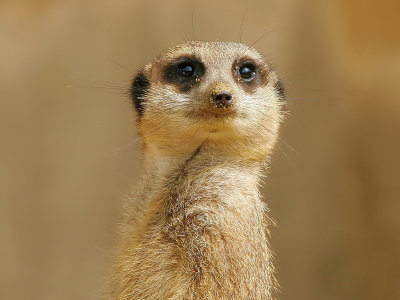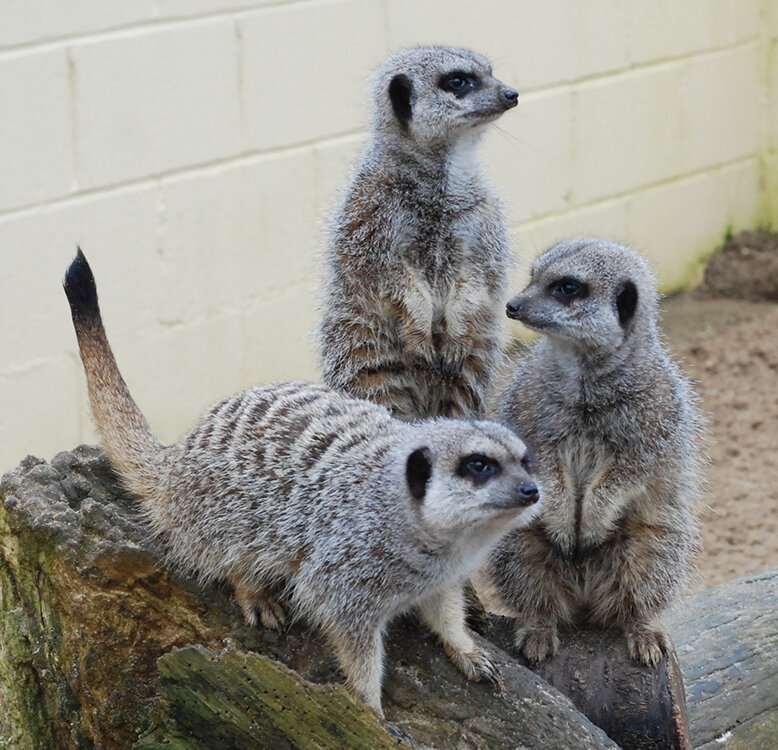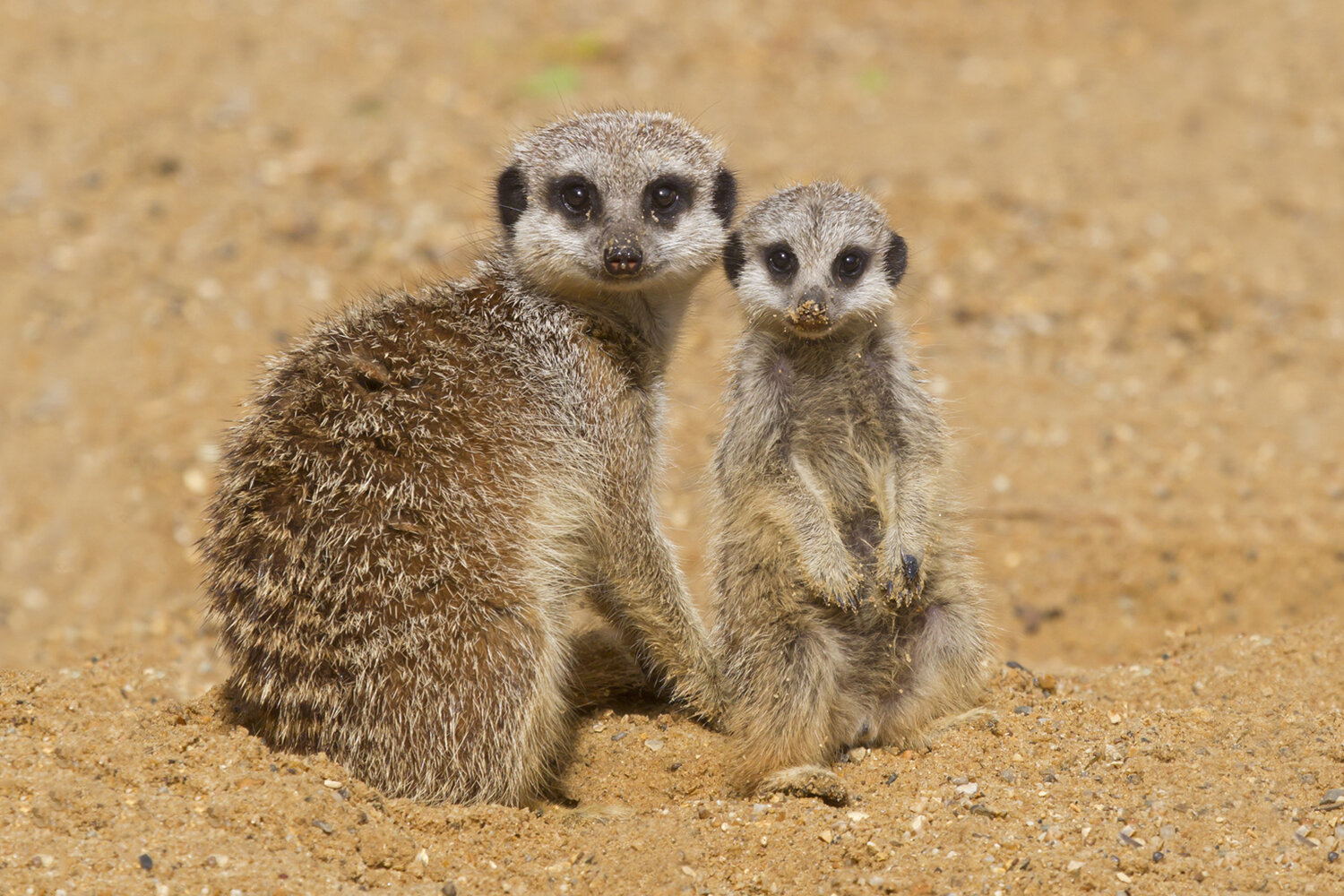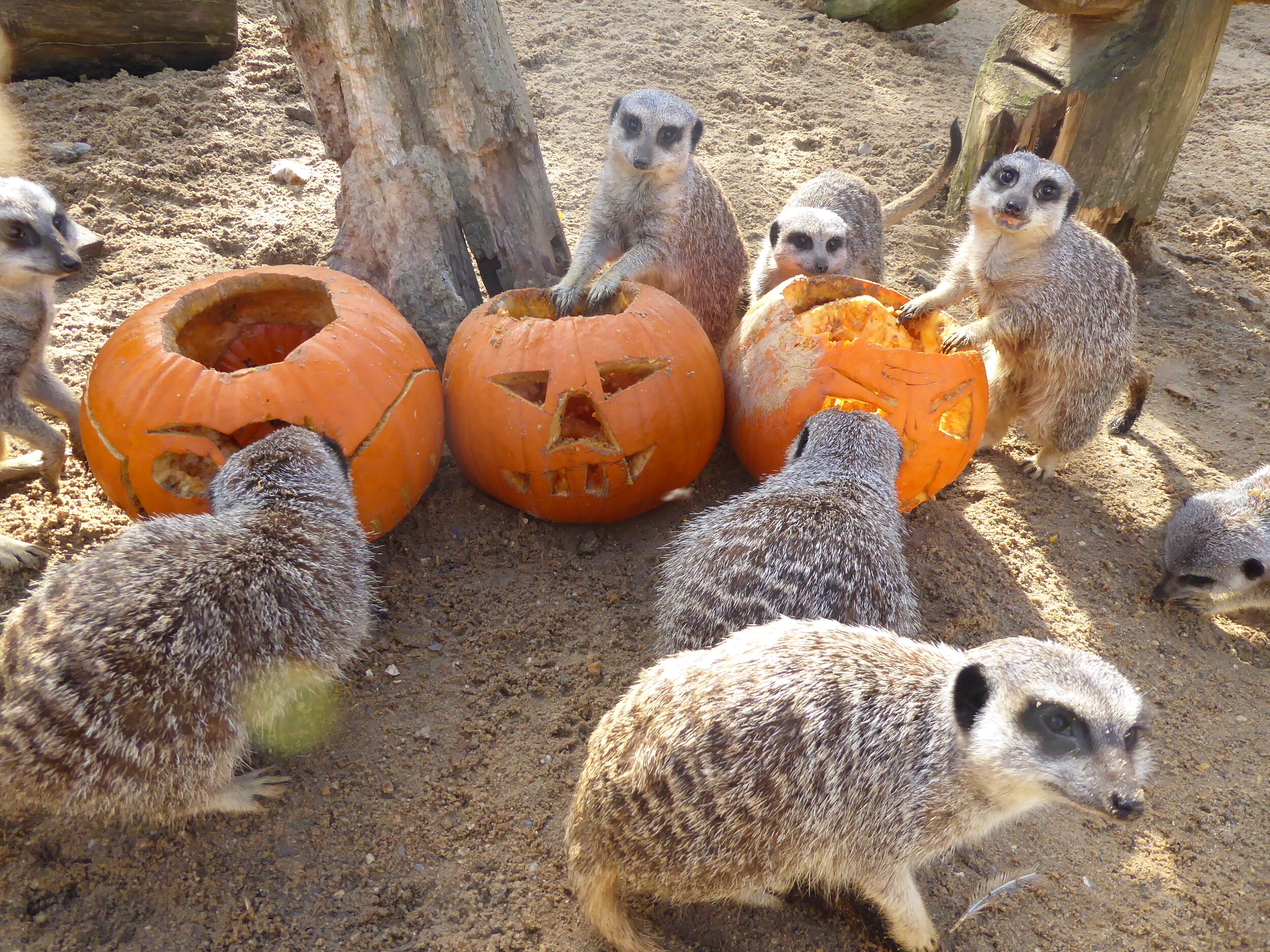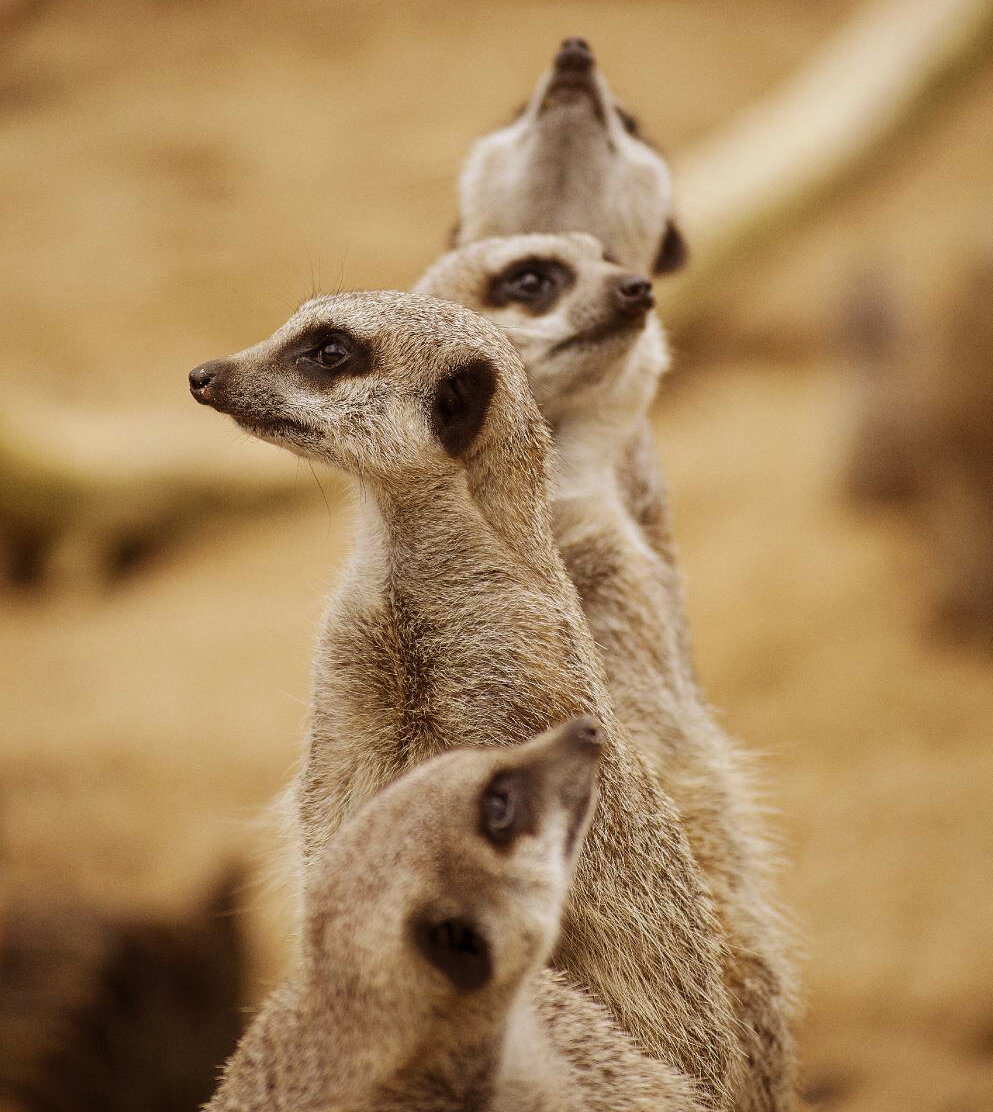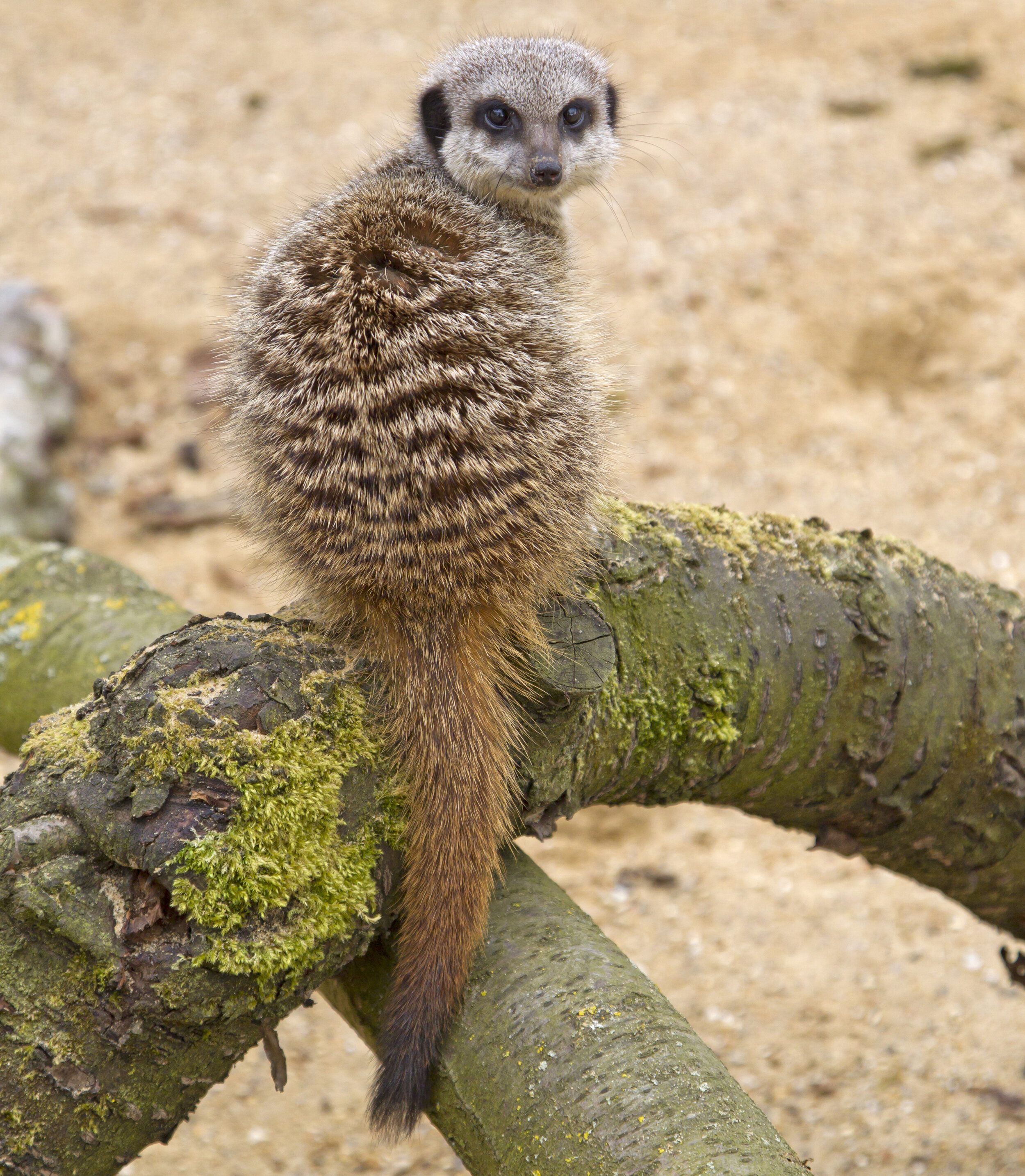Meerkat Kastle
Our family of meerkats is very popular with all the visitors to the centre. They reside at their new "Meerkat Kastle" - a purpose-built facility designed to house these fascinating creatures in a way that illustrates their unique way of life to the best advantage.
It’s great fun to take an up-close and personal walk on the wild side with The Mob during a Meerkats Encounter when you will spend time inside their enclosure discovering all about these fascinating creatures with one of our trained handlers. Starting at 10.30 am and lasting for approx. 20 minutes, encounters are restricted to a maximum of 4 people, minimum age 8. Bookable now, the cost per encounter per person is £30 excluding admission. Spectators are welcome at no charge, but are not admitted into the meerkat enclosure.
“Meet The Meerkat Mob” Close Encounters - Dates for 2024
APRIL :
Mondays (12:30PM) - 8th, 15th, 22nd & 29th
Wednesdays - (12:30PM) - 10th, 17th & 24th
Thursdays - (10:30AM) - 11th, 18th & 25th
Fridays - (12:30PM) - 12th, 19th & 26th
Sundays - (10:30AM) - 14th, 21st & 28th
MAY :
Mondays - (12:30PM) - 6th, 13th, 20th & 27th
Wednesdays - (12:30PM) - 1st, 8th, 15th, 22nd & 29th
Thursdays - (10:30AM) - 2nd, 9th, 16th, 23rd & 30th
Friday - (12:30PM) - 3rd, 10th, 17th, 24th & 31st
Sunday - (10:30AM) - 5th, 12th, 19th & 26th
Dates for each subsequent month June - December will be published here two months prior
If adverse weather conditions look likely on the day before your visit - too hot, too cold, too wet, too windy - please call the Centre on 03456 807 897 or email suffolkowlhome@gmail.com to confirm the arrangements, as some courses may be postponed if the weather is likely to be entirely unsuitable. PLEASE NOTE: your safety and the wellbeing of our meerkats are of primary concern - please read our Terms & Conditions in order to participate in the Meerkat Close Encounters.
Meerkats are small mammals belonging to the mongoose family. They live in all parts of the Kalahari Desert in Botswana and also Namibia, southwestern Angola and South Africa. A group of meerkats is called a "mob" which often contains about 20 meerkats in the wild.
Meerkats are burrowing animals, living in large underground networks with multiple entrances which they leave only during the day. They are very social - animals in the same group regularly groom each other to strengthen social bonds. The alpha pair often scent mark subordinates of the group to express their authority, and this is usually followed by the subordinates grooming the alphas and licking their faces. Most meerkats in a group are all siblings or offspring of the alpha pair.
Meerkats demonstrate altruistic behaviour within their colonies; one or more meerkats stand sentry while others are foraging or playing, to warn them of approaching dangers. When a predator is spotted, the meerkat performing as sentry gives a warning bark, and other members of the gang will run and hide in one of the many bolt holes they have spread across their territory. The sentry meerkat is the first to reappear from the burrow and search for predators, constantly barking to keep the others underground. If there is no threat, the sentry meerkat stops signalling and the others feel safe to emerge.
Meerkats also babysit the young in the group. Females that have never produced offspring of their own often lactate to feed the alpha pair's young. They also protect the young from threats, often endangering their own lives - on warning of danger, the babysitter takes the young underground to safety and is prepared to defend them if the danger follows. If retreating underground is not possible, she collects all young together and lies on top of them.
Like many species, meerkat young learn by observing and mimicking adult behaviour though adults also engage in active instruction. For example, meerkat adults teach their pups how to eat venomous scorpions; They will remove the stinger and help the pup learn to handle the creature.
Despite this altruistic behaviour, meerkats sometimes kill young members of their group. Subordinate meerkats have been seen killing the offspring of more senior members in order to improve their own offspring's position.
Meerkats have been known to engage in social activities, including what appear to be wrestling matches and foot races.


